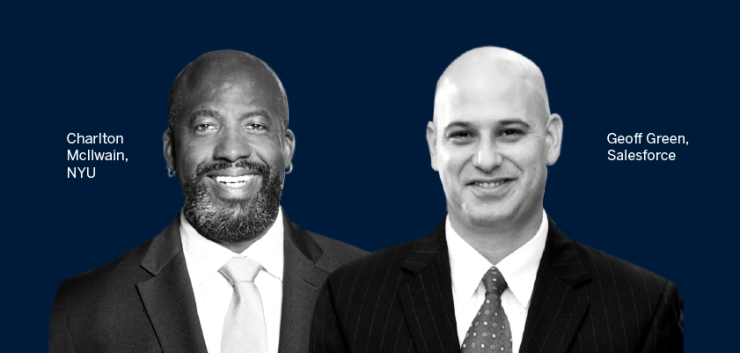Education on the underlying history of racism in both technology development and housing is key to eliminating bias in mortgage technology, panelists said at the National Mortgage News Digital Mortgage Conference this week.
The development of computing in the early 1960s was designed and utilized to disenfranchise and discriminate against African Americans and other people of color, said Charlton McIlwain, vice provost for faculty engagement and development at New York University during a panel on rooting out racial bias in technology.
The starting point for creating technology that employs fair and equitable automated decision making is the education component, "and making sure that those that are driving business decisions, those that are designing technologies have this sense of this historical legacy," said McIlwain, referencing redlining, blockbusting and other discriminatory practices.

One example of prejudicial technology was Facebook's
"A lot of people that were surprised that this was happening … and no one sort of thought about the consequences," McIlwain declared.
"If you are putting together a platform and you do not have this sense of historical knowledge about race and racism both in the technology but more in the mortgage industry, then this just seems like a benign thing and you're not realizing that what has been done is enabling a long history of bad actors and bad practices," he added.
In the panel discussion, led by reporter Tanaya Macheel, Geoff Green, global head of mortgage and lending at Salesforce acknowledged that many Black and Hispanic people have not been able to build wealth through homeownership as whites have.
In the current environment, whether the consumer is doing a purchase, refinance or if they’re requesting forbearance, "the idea is to use AI capabilities to help them get through those key process and begin a journey-based relationship between the lender and that family that grows over time regardless of color or creed or sexual orientation or any boundaries that might stand in the way of everybody having that same fair shake," Green said.
A 2018 University of California study showed that while algorithms used in lending increased mortgage approvals, it also found
So while the higher approval rates were a step forward, the study also proved that the systems have to be built "in very deliberate ways and we have to ways of accessing their outcome to know if they're disparately impacting certain individuals or groups negatively," McIlwain said.
The algorithms in the systems examined in the 2018 study used too little data, just credit score and loan-to-value ratio, he said. But there is also a problem when too much information is being assessed by an algorithm.
"It is the rush to utilize data simply because of its availability, to aggregate data from different sources without understanding really the sources and the implications," said McIlwain. "And then there's problems with making inferences from data … sourced from places that we know nothing about."
On the other hand, Green said, for those who have thin credit files or don't have a credit history, it is the fintechs that are helping to
Creating more equitable technologies will be increasingly important as market watchers anticipate an
"There is so much competition right now between bank and nonbank lenders for every loan," said Green. "With fintechs coming up to help evaluate nontraditional credit sources and credit worthiness, it is just a wonderful ... opportunity for an equal playing field for everybody to get into a home who can afford it and to have that avenue to build wealth for their families for the long-haul."
In creating new technology, the aim should not be "to make technology that is not discriminatory," McIlwain said. "It is a laudable goal, we certainly need it, we must have it. But if we sit down and said what kind of technology could we build [to] help these folks to be better able to access their opportunity, I think that's a much better vision and way of thinking about how we move forward." That's preferable to creating systems to find and root out bias, an exercise McIlwain compared to the arcade game whack-a-mole.




